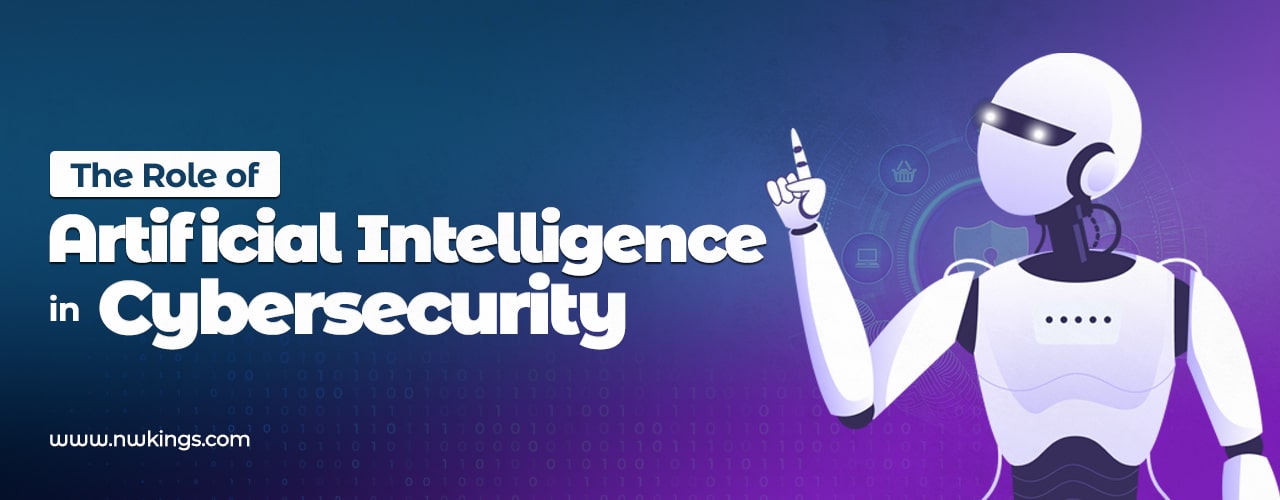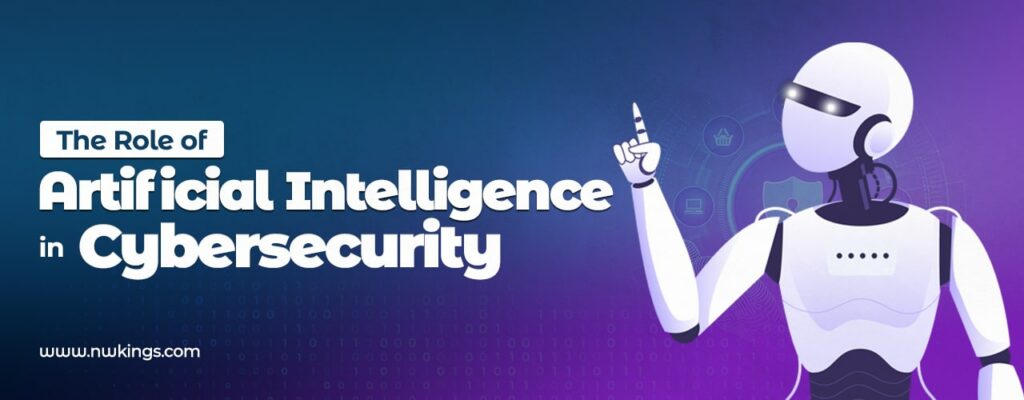
AI (Artificial Intelligence) is revolutionizing countless industries, but its true potential can be seen when it comes to cybersecurity. In this blog post, we will take a look at the advantages that come with using AI in Cybersecurity and also consider different use cases for artificial intelligence in this area.
What is AI?
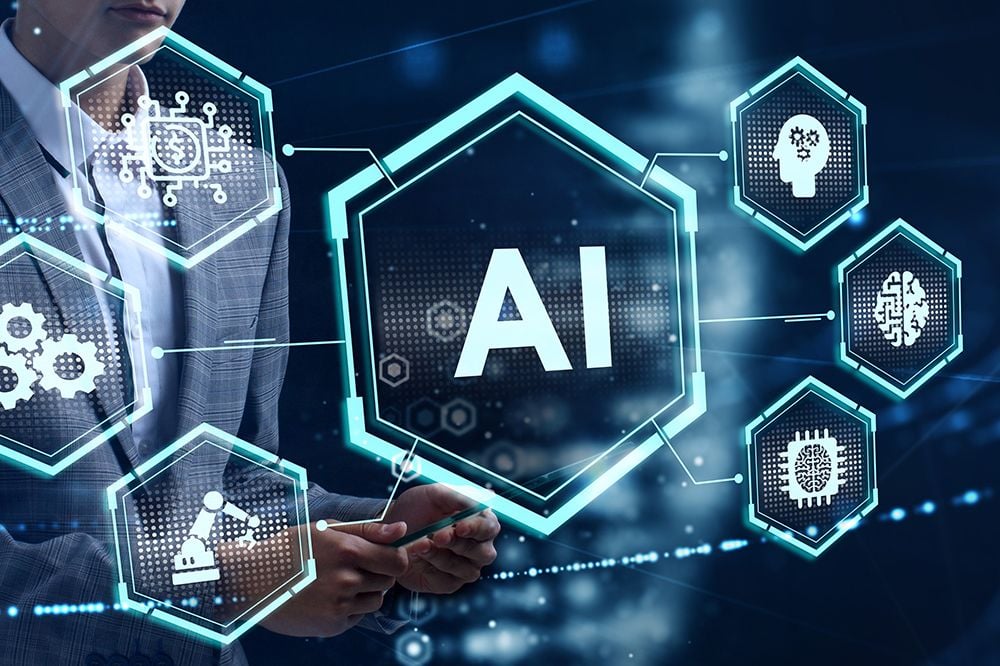
Artificial Intelligence simulates human intelligence by programming computers and machines to think, understand and learn just like we humans do. This means they can carry out tasks usually requiring people skills – such as speech recognition, problem-solving or decision-making. AI brings easiness to life.
What is the role of AI in technology?
AI is a vital part of technology, enabling machines and systems to do complicated jobs independently. It boosts efficiency, accuracy, and productivity by automating various processes as well as allowing for smart decision-making.
NOTE: Know the important role of AI in Cybersecurity by clicking on this Link given below.
What are the advantages of AI in technology?

The advantages of AI in technology are as follows-
Automation
Utilizing AI makes it possible to automate mundane and repetitive duties which minimizes human mistakes while freeing up valuable time for more intricate problems or creative undertakings. This means computers are capable of doing jobs usually needing people skills – such as speech recognition, problem-solving or decision-making.
Efficiency
AI algorithms are capable of processing and analyzing a huge amount of data much quicker than humans. This leads to more productivity in tasks, like data analysis, distinguishing patterns as well as making decisions.
Personalization
With the help of AI-driven systems, we can customize experiences and recommendations according to individual preferences which further boosts satisfaction with applications such as e-commerce, content streaming or marketing.
Predictive Analytics
Artificial intelligence allows us to anticipate future trends and outcomes based on records aiding businesses while they are trying to make informed choices regarding resource allocation together with risk reduction.
Improved Customer Service
Chatbots along with digital assistants boosted by artificial intelligence supply 24-hour support, respond to customer inquiries, mend issues, and boost customers’ happiness.
The Role of Artificial Intelligence in Everyday Life
AI continues to revolutionize many aspects of our lives with its unique capabilities. Healthcare advancements, improved cybersecurity measures, autonomous vehicles and natural language processing are some ways that it has reshaped how we live today.
Healthcare Improvements Powered by AI
By analyzing medical images, genomic data and patient records – AI helps us diagnose diseases more accurately as well as come up with new treatment plans quicker than ever before which leads to greater healthcare outcomes for patients. What’s even more interesting is the fact that recent studies conducted on this subject show promise when it comes to drug discoveries too!
Enhanced Cybersecurity through Machine Learning-enabled Algorithms
Modern-day malicious activities can be detected faster thanks to artificial intelligence working behind the scenes; detecting anomalies quickly while simultaneously identifying potential security breaches way ahead of time unlike manual methods employed earlier.
Autonomous Vehicles and Their Dependence on Advanced Computer Vision Techniques
Autonomous cars have become a reality largely in part because computers running machine learning algorithms process sensor readings from cameras mounted around these self-driving automobiles helping them make split-second decisions needed during navigation thus making such rides much safer for passengers compared to traditional human-driven alternatives.
Natural Language Processing (NLP)
This technology enabled by advances made within artificial intelligence increases understanding accuracy related to conversations and translation services applications like virtual assistants or sentiment analysis benefiting millions worldwide.
Environmental Impact Enabled Through Smart Technology Implementations
Industries ranging from agriculture down towards manufacturing centers depend heavily upon computer vision technologies coupled together alongside energy optimization techniques allowing efficient resource allocation tactics resulting in reduced waste levels whilst improving sustainability practices amongst others held under scrutiny here!
What are the disadvantages of AI in technology?

The disadvantages of AI in technology are as follows-
Job Displacement
AI automation can lead to job loss in certain industries, as machines and algorithms replace human workers in tasks ranging from manufacturing to customer service.
Biases and Unfairness
AI systems can have biases that were present in their data used for training, leading to unfair or discriminatory results when it comes to hiring, lending and even criminal justice if not properly handled.
Lack of Innovation
AI is limited in being able to think outside the box, solve unique problems or recognize complex human emotions. This could stand as an obstacle to its application in some creative fields where emotion is involved.
Data Dependency
A lot of dependence on massive datasets is required by Artificial Intelligence so it can use them while making decisions; this makes AI vulnerable since errors may occur while collecting information from such large databases. How do you ensure accuracy in your collected data?
Security Issues
AI-enabled systems can be exposed to cyberattacks and manipulation, as hackers may exploit vulnerabilities in AI algorithms or manipulate data to deceive AI systems.
Ethical Quandaries
The utilization of AI for autonomous weapons, surveillance, and other sensitive topics raises ethical inquiries about control, responsibility and unintended outcomes.
Expense
Generating and maintaining Artificial Intelligence programs could prove costly restricting access to the advantages of this technology for smaller companies together with underserved societies.
Privacy Fears
AI’s capability to process and review immense amounts of personal info brings up privacy issues, particularly in applications such as facial recognition moreover predictive policing.
Job Skills Gap
Taking on Artificial Intelligence calls for a labor force to have the abilities necessary so that you can create, execute along maintain these types of structures creating an ability gap many nations furthermore industries presently have.
Loss Of Human Element
Prevalent within areas which include health care also customer service, employing AIs has been known so that you can devalue people touch combined with psychological connection mostly required when it comes towards providing thoughtful attention together with assistance.
What is the future of AI in technology?
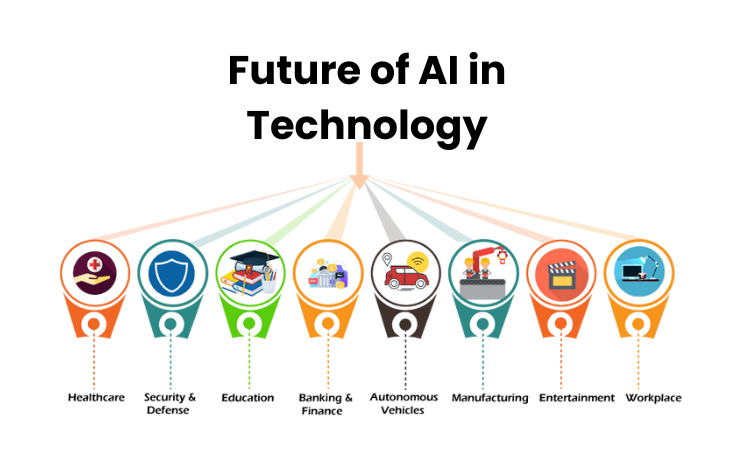
The future of AI in technology holds immense potential. It is expected to continue advancing rapidly, driving innovation and transforming various industries. As AI becomes more sophisticated, it will likely play an even more significant role in shaping the future of technology.
What is Cybersecurity?

Cybersecurity involves safeguarding computer systems, networks, as well as data from harm or unauthorized access. This means implementing methods to stop security breaches – being aware enough to detect threats swiftly and responding correctly should any cyber incident arise.
What is the role of Cybersecurity in technology?
Cybersecurity is critical in technology as it safeguards private details, keeps confidentiality and ensures the integrity of systems and networks. It helps shield against cyber threats such as hacking, malware, phishing and data breaches.
What are the advantages of Cybersecurity in technology?
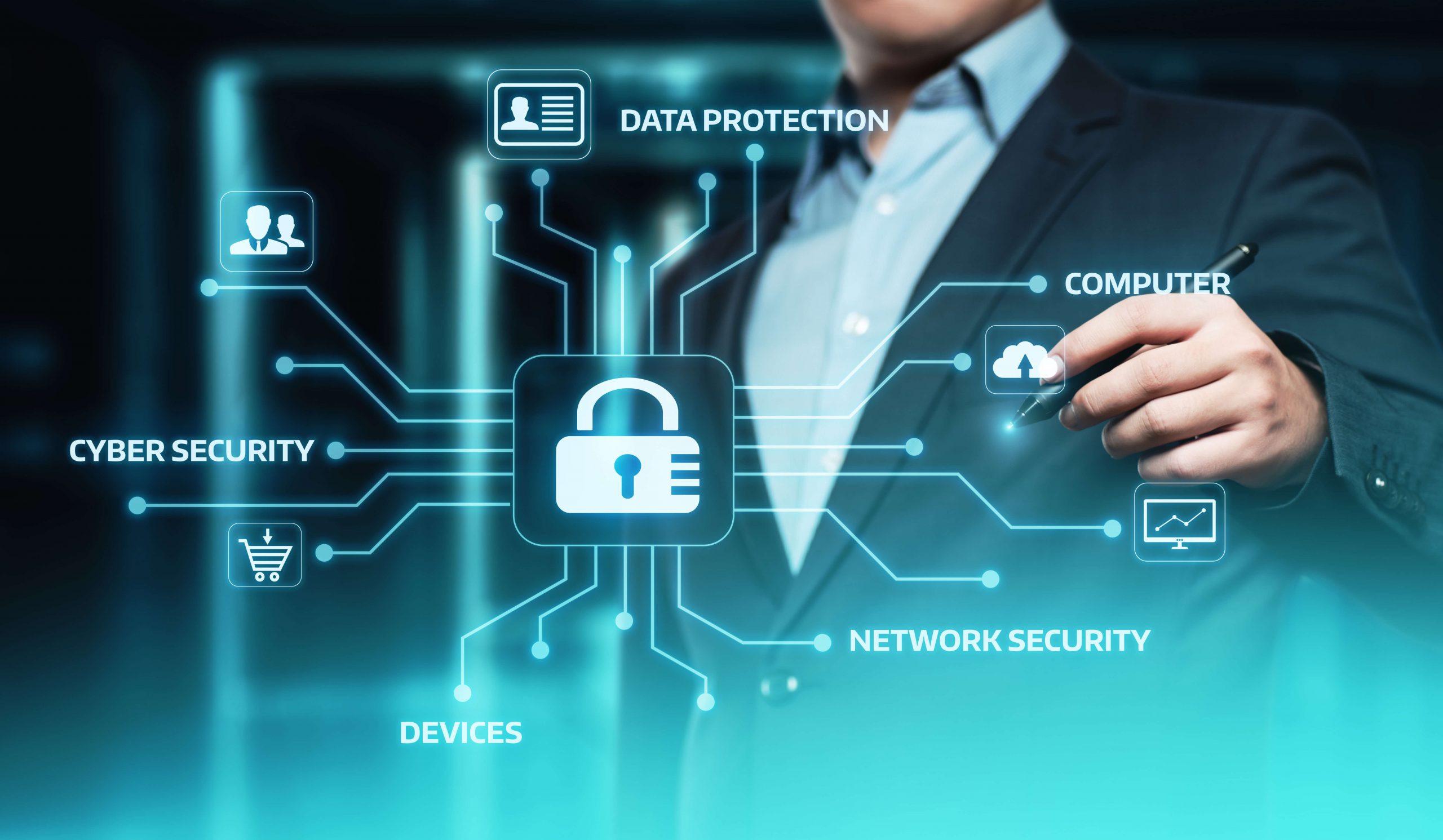
The advantages of Cybersecurity in technology are as follows-
Data Protection
Cybersecurity measures safeguard sensitive and confidential data from unauthorized access, theft, or breaches, ensuring the privacy of individuals and organizations.
Business Continuity
Effective cybersecurity helps prevent disruptions caused by cyberattacks, allowing businesses to operate smoothly and maintain their reputation.
Financial Security
Protecting financial transactions and sensitive financial information prevents financial losses and fraud, benefiting individuals and organizations alike.
Intellectual Property Protection
Cybersecurity safeguards intellectual property, such as patents, trade secrets, and proprietary software, preserving a competitive edge for businesses.
Preventing Identity Theft
Cybersecurity measures help prevent identity theft by securing personal information and reducing the risk of financial and reputational damage.
Reputation Management
A strong cybersecurity posture builds trust with customers, partners, and stakeholders, enhancing an organization’s reputation and credibility.
National Security
Cybersecurity is crucial for protecting critical infrastructure, government systems, and national security interests from cyberattacks and espionage.
Compliance and Regulations
Meeting cybersecurity standards and regulations ensures legal compliance and avoids potential fines and legal consequences for non-compliance.
Incident Response
Effective cybersecurity includes incident response plans that minimize the impact of breaches, shorten recovery times, and reduce financial losses.
Innovation and Growth
A secure digital environment fosters innovation and business growth by encouraging the development and adoption of new technologies without the fear of cyber threats.
What are the disadvantages of Cyber Security in technology?
The disadvantages of Cyber Security in technology are as follows-
Cost
Implementing robust cybersecurity measures can be expensive, especially for small businesses and individuals, which can lead to budget constraints.
Complexity
Cybersecurity technologies and strategies can be complex and require specialized knowledge, making it challenging for non-experts to understand and implement effectively.
False Positives
Security systems may generate false alarms or identify benign activities as threats, leading to unnecessary disruptions and wasted resources.
False Negatives
Conversely, cybersecurity systems can miss real threats, leaving vulnerabilities unaddressed and exposing systems to potential breaches.
User Friction
Stringent security measures, such as multi-factor authentication and complex password requirements, can create user frustration and resistance to security protocols.
Resource Intensity
Maintaining and updating cybersecurity systems requires a significant amount of time and resources, diverting attention and funds from other critical tasks.
Over-reliance on Technology
Relying solely on technology can create a false sense of security, neglecting the human element, which is often a weak link in cybersecurity.
Evolving Threats
Cyber threats continually evolve, requiring constant updates and adaptations in cybersecurity measures to stay effective.
Privacy Concerns
Some cybersecurity measures, like data monitoring and surveillance, may encroach on individual privacy rights and civil liberties.
Cat-and-Mouse Game
As cybersecurity improves, cybercriminals develop more sophisticated tactics, resulting in an ongoing arms race between defenders and attackers.
What is the future of Cybersecurity in technology?

The future of cybersecurity will depend on tech innovations. As cyber threats become more advanced, forms of protection have to change accordingly to effectively tackle these issues. Artificial intelligence (AI) will play a key part in enhancing existing features for better digital security. Could AI help us come out on top against malicious hackers intent on exploiting any weaknesses? It’s possible but only time – and further technological advancements – will tell!
How are AI and Cybersecurity related to each other?
AI and cybersecurity go hand in hand. With the help of AI technologies, it is possible to enhance cybersecurity defences significantly by analyzing vast amounts of data quickly, recognizing patterns or behaviours that appear out of place, detecting anomalies easily like suspicious activity on a network, and responding rapidly to potential threats.
What is the use of Artificial Intelligence in Cyber Security?
AI is proving itself useful for improving our security measures against cyber attacks. AI can help security teams to enhance and maintain the performance of IT security. The use of artificial intelligence in cyber security is as follows-
Threat Detection
AI-driven algorithms analyze vast amounts of data in real time to identify patterns and anomalies indicative of cyberattacks, allowing for early threat detection.
Intrusion Detection and Prevention
AI-powered intrusion detection systems can detect and block malicious activities, including unauthorized access attempts and network intrusions.
Behavioural Analysis
AI monitors user and network behaviour to establish baselines, detecting deviations that may indicate suspicious or malicious activities.
Malware Detection
AI algorithms can identify and classify malware by analyzing code and behaviour, aiding in the detection and removal of malicious software.
Phishing Detection
AI-enhanced email security systems analyze email content and sender behaviour to identify phishing attempts and malicious links.
Threat Hunting
AI assists cybersecurity professionals in proactively searching for hidden threats and vulnerabilities within a network or system.
User Authentication
AI enables advanced user authentication methods, such as biometrics and behavioural analysis, for stronger security and reduced reliance on passwords.
Predictive Analysis
AI can predict potential vulnerabilities and weaknesses in a network or system, allowing for proactive patching and security updates.
Automation of Response
AI can automate incident response processes, rapidly mitigating threats and minimizing the impact of cyberattacks.
Security Orchestration
AI can facilitate the coordination and integration of various security tools and systems, streamlining security operations and response efforts.
What are the benefits of using AI in Cybersecurity?

Though AI adoption is increasing in IT, conquering the landscape of cyber threats has become critical. The benefits of using AI in cybersecurity are as follows-
Enhanced Threat Detection
AI can identify and respond to cyber threats in real-time, even recognizing previously unseen attack patterns and behaviours.
Improved Accuracy
AI-driven systems minimize false positives and negatives, enhancing the accuracy of threat detection and reducing the workload on cybersecurity teams.
Rapid Response
AI automates incident response, allowing for faster threat mitigation and reducing the potential impact of cyberattacks.
Scalability
AI systems can handle large volumes of data and security events, making them suitable for organizations of all sizes and industries.
Continuous Monitoring
AI operates 24/7, providing continuous monitoring and protection against evolving threats, even during off-hours.
Predictive Analysis
AI can anticipate and proactively address vulnerabilities and potential weaknesses before they are exploited by attackers.
Behavioural Analysis
AI assesses user and network behaviour for anomalies, helping identify insider threats and unusual activities.
Consistency
AI systems maintain a consistent level of vigilance and adherence to security policies, reducing the risk of human error.
Reduction in Workload
By automating routine tasks and decision-making processes, AI frees up cybersecurity professionals to focus on more strategic and complex security issues.
Adaptability
AI algorithms and models can be updated and fine-tuned to adapt to new threats and challenges, ensuring long-term relevance and effectiveness.
What are the disadvantages of using AI in Cybersecurity?
The disadvantages of using AI in cybersecurity are as follows-
Complexity
Implementing AI-driven cybersecurity systems can be complex and requires specialized knowledge, which can be a barrier for some organizations.
Cost
Developing, deploying, and maintaining AI systems can be expensive, especially for smaller businesses and organizations with limited budgets.
False Positives
AI-driven systems may generate false alarms, leading to unnecessary investigations and wasting valuable time and resources.
Adversarial Attacks
Sophisticated attackers can manipulate AI algorithms by feeding them misleading data, potentially rendering the AI system ineffective or even harmful.
Over-reliance
Relying too heavily on AI can lead to complacency among cybersecurity professionals and neglect of other important security aspects.
Lack of Context
AI may lack the ability to understand the broader context of threats, potentially leading to incorrect assessments or decisions.
Privacy Concerns
Some AI cybersecurity measures, like deep packet inspection or data monitoring, may infringe on individual privacy rights and raise ethical concerns.
Limited Understanding of Intent
AI may have difficulty discerning between malicious intent and legitimate activities, leading to either false negatives or false positives.
Continual Evolution of Threats
Cyber threats constantly evolve, and AI systems may struggle to keep up with the latest attack techniques.
Skill Requirements
Effective use of AI in cybersecurity requires skilled personnel who can manage and fine-tune AI systems, which can be a challenge due to the shortage of cybersecurity experts.
What challenges will I face while implementing AI in Cybersecurity?
The challenges you can face while implementing AI in cybersecurity are as follows-
Data Quality
AI relies on high-quality data for training and decision-making. Inadequate or biased data can lead to inaccurate results.
Data Privacy
Handling sensitive data for AI training and analysis may raise privacy concerns and legal compliance issues.
Complexity
Integrating AI solutions can be complex and may require specialized knowledge and expertise.
Cost
Developing and maintaining AI systems can be expensive, potentially straining budgets.
Lack of Skilled Personnel
There is a shortage of cybersecurity professionals with AI expertise, making it challenging to find and retain the right talent.
False Positives
AI-driven systems can generate false alarms, potentially leading to unnecessary investigations and alert fatigue.
Adversarial Attacks
Sophisticated attackers may attempt to manipulate AI systems, rendering them ineffective or even turning them against the organization.
Interoperability
Ensuring that AI tools and systems can work seamlessly with existing cybersecurity infrastructure and technologies can be challenging.
Ethical Concerns
AI in cybersecurity raises ethical questions regarding privacy, bias, and the potential for unintended consequences.
Regulatory Compliance
Organizations need to navigate complex regulatory landscapes and ensure that AI solutions comply with data protection and cybersecurity regulations.
How to overcome these challenges?
To overcome the aforementioned challenges one can face while implementing AI in cybersecurity are as follows-
Data Quality:
- Invest in data preprocessing: Clean, normalize, and curate your data to ensure it’s of high quality.
- Implement data governance policies to maintain data integrity.
- Regularly update and validate your training data to reflect changing threats.
Data Privacy:
- Use encryption and access controls to protect sensitive data during AI training and analysis.
- Comply with data protection regulations (e.g., GDPR, CCPA) by implementing privacy-preserving AI techniques.
Complexity:
- Start with pilot projects to gain experience before scaling AI implementations.
- Collaborate with AI experts or consider partnering with AI vendors for assistance.
Cost:
- Develop a comprehensive budget that includes initial setup, ongoing maintenance, and staff training costs.
- Consider cloud-based AI services, which can be cost-effective and scalable.
Lack of Skilled Personnel:
- Invest in training and upskilling your existing cybersecurity team in AI technologies.
- Collaborate with educational institutions and industry organizations to recruit AI talent.
False Positives:
- Fine-tune AI algorithms and models regularly to reduce false positives.
- Implement human-in-the-loop systems where human experts review and validate alerts.
Adversarial Attacks:
- Employ robust security measures to protect AI models from adversarial attacks.
- Continuously monitor and audit AI systems for vulnerabilities and anomalous behaviour.
Interoperability:
- Choose AI solutions that are compatible with your existing cybersecurity infrastructure or invest in integration tools.
- Work closely with vendors to ensure seamless integration.
Ethical Concerns:
- Establish clear ethical guidelines and principles for AI usage in cybersecurity.
- Regularly assess AI models for biases and fairness and take corrective actions as needed.
Regulatory Compliance:
- Stay informed about evolving cybersecurity and data protection regulations.
- Engage legal and compliance experts to ensure AI solutions align with regulatory requirements.
Wrapping Up!
AI’s integration into cybersecurity brings numerous benefits, including enhanced threat detection, real-time response capabilities, and improved scalability. However, challenges such as adversarial attacks, interpretability issues, and the need for skilled professionals must be addressed. As technology advances further, the future of AI in cybersecurity holds great promise, paving the way for more robust defence mechanisms against evolving cyber threats.
Happy Learning!


